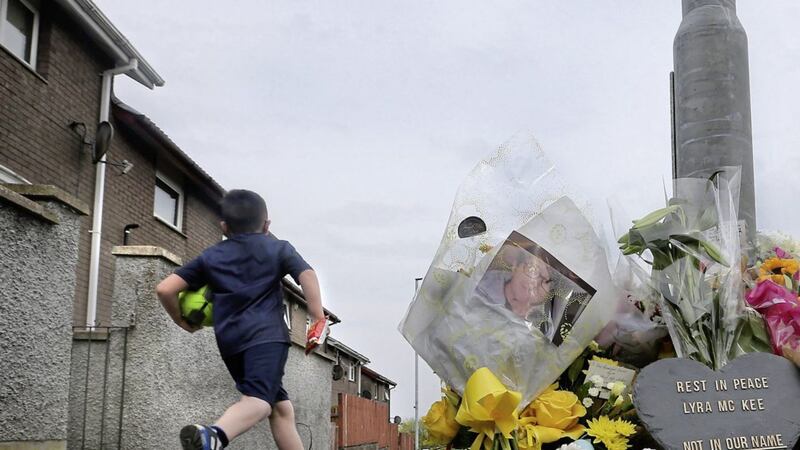Anniversaries can be a moveable feast. The Easter Rising began on April 24 and, strictly speaking, the Irish state commemoration should be held on that exact date. Otherwise it should be on Easter Monday, which occurred on that April day in 1916, but it takes place on Easter Sunday as a rule.
The Belfast/Good Friday Agreement was concluded on April 10, 1998, which is generally treated as the anniversary each year, rather than the religious holiday which gave the pact its most popular designation. Good Friday is such a sombre occasion in religious terms that celebrating the 1998 deal might not really be appropriate for that particular day. Besides, the GFA is not commemorated in the same formal manner that applies to 1916.
Both the Rising and the Good Friday pact are seen as positive occurrences by those who approve of the consequences that flowed from them: in one case, the eventual achievement of independence for much of the island and, in the other, a settlement that created a formal structure for the two parts of a divided community to work together in the common interest.
However, the Rising marked the beginning of a violent conflict whereas Good Friday facilitated the ending of one. Is it legitimate or even logical to support the two anniversaries?
It’s a question I ask of myself since I have tended to take a fairly-balanced approach to both events. However, my attitude to 1916 has become rather more critical in recent years, given the focus on the number of casualties at almost 500, more than half of them ordinary civilians and 17 per cent children or teenagers.
It’s reasonable to suggest that Pádraig Pearse, James Connolly and their friends didn’t have a great grasp of military issues. Writing in a radical Swiss publication shortly after the Rising, the international socialist Karl Radek dismissed the rebellion as a “putsch”, a doomed attempt at a coup d’état which lacked mass support because the oppressed tenant farmers of Ireland had been turned into small landholders through the process of agrarian reform.
A year-and-a-half after the Rising, the rather more successful Russian Revolution took place and Radek became a senior figure in the Soviet administration, before falling foul of the dictator Joseph Stalin and meeting his death in a prison camp.
Radek’s 1916 critique appeared on May 9 and may well have been written a couple of days prior to publication. The executions of the 1916 leaders began on May 3 and continued until the 12th of the month, which didn’t leave him a lot of time to assess the impact of those killings.
The initial reaction of the Irish public to the Rising, certainly on the streets of Dublin, appears to have been largely hostile, but all this changed with the ruthless dispatch of seven signatories to the Proclamation and eight other key figures. As W B Yeats put it so eloquently at the time: “A terrible beauty is born.”
A contemporary of Radek’s and fellow-radical, Karl Kautsky, wrote that “the spirit of militarism” had become dominant in the British government because of the First World War and this led to “stupid, pig-headed and sordid” decisions such as the 1916 executions. Far from extinguishing the spirit of rebellion, those killings “enabled it to blaze up to its full height”.
Whatever one’s attitude to the Rising, it must be admitted that the Proclamation is a well-written document, with its declaration of intent, “to pursue the happiness and prosperity of the whole nation and of all its parts, cherishing all the children of the nation equally, and oblivious of the differences carefully fostered by an alien government, which have divided a minority from the majority in the past”.
For all his devotion to the “sweet and kingly tongue of the Gael”, that fellow Pearse (aided perhaps on this occasion by Connolly) had a good grasp of Anglo-Saxon prose.
Turning to the Good Friday Agreement, US politician Nancy Pelosi’s warning that Brexit must not be allowed to damage the accord has attracted much coverage. But the greatest threat to the GFA is the failure of the DUP and Sinn Féín to restore the power-sharing Executive. May 8 is the 12th anniversary of the day Rev Ian Paisley and Martin McGuinness put aside their differences to begin a power-sharing relationship. We need that spirit back again.
The urgency of restoring serious non-violent politics has been underlined by the tragic and violent death last week of the talented young journalist Lyra McKee. Although we were friends on Facebook, I did not really know her personally but always admired her work and her courage. It is sad beyond words that such a dynamic life-force has been taken from us, but her spirit and memory will remain with us still.
Ddebre1@aol.com








